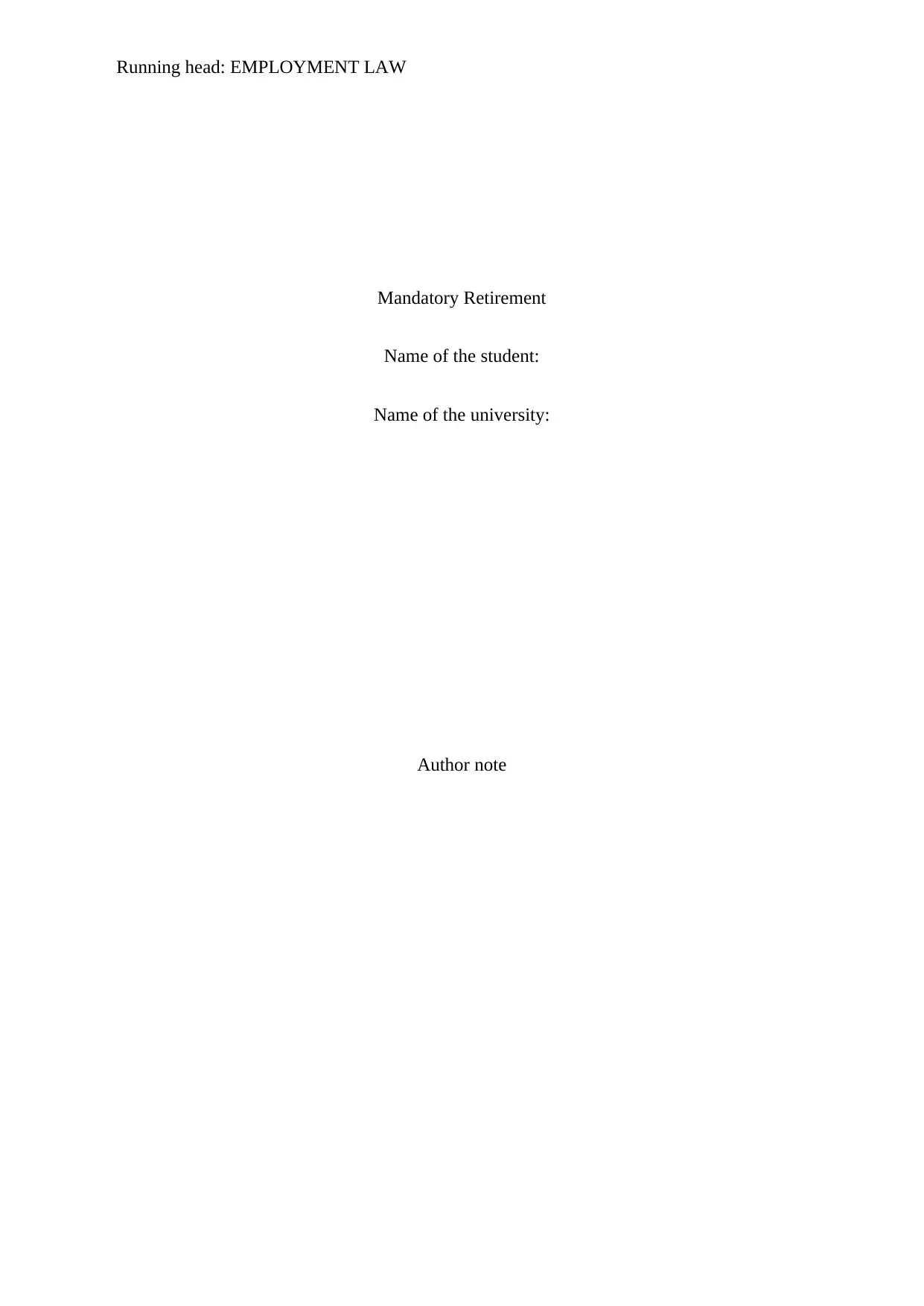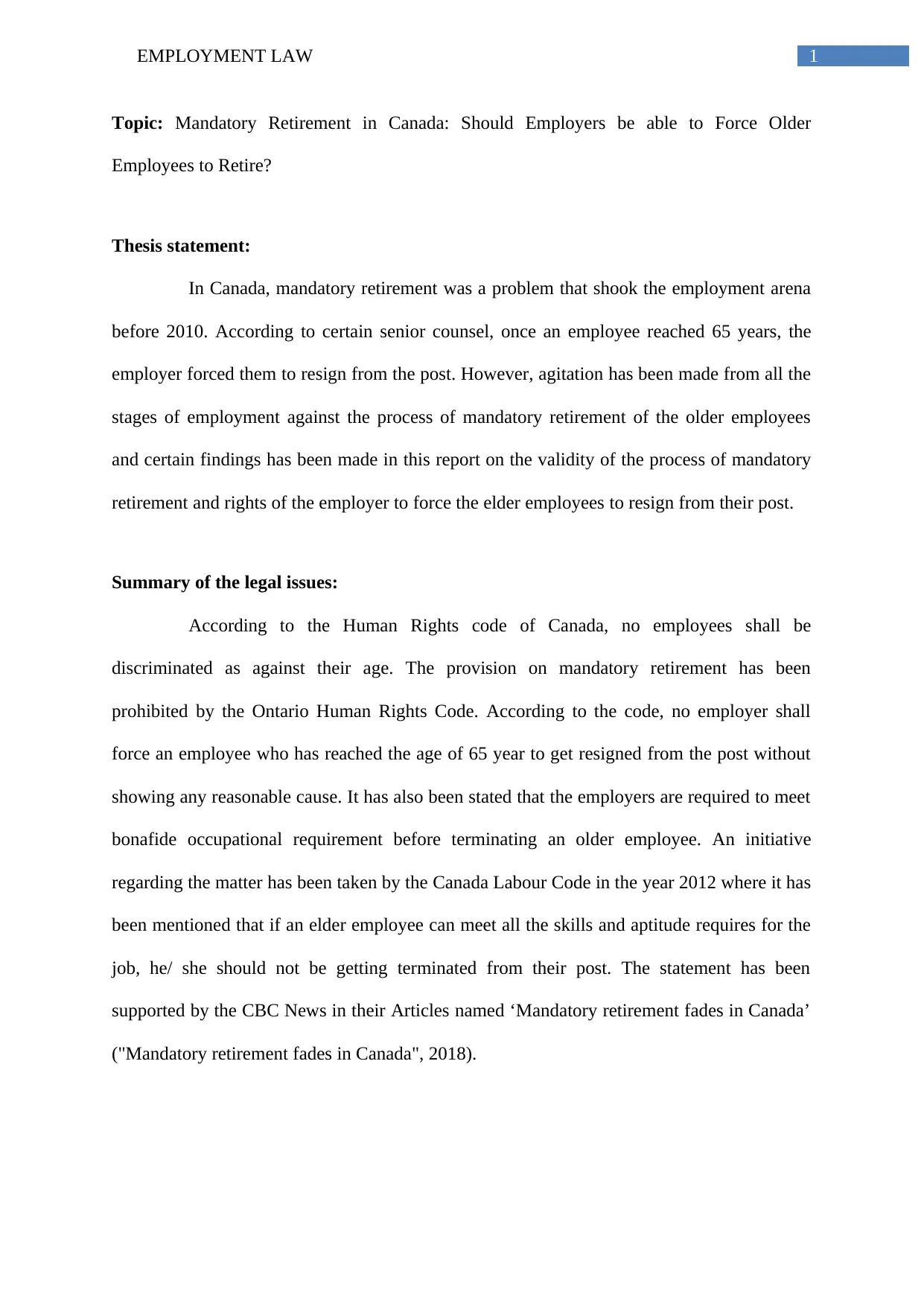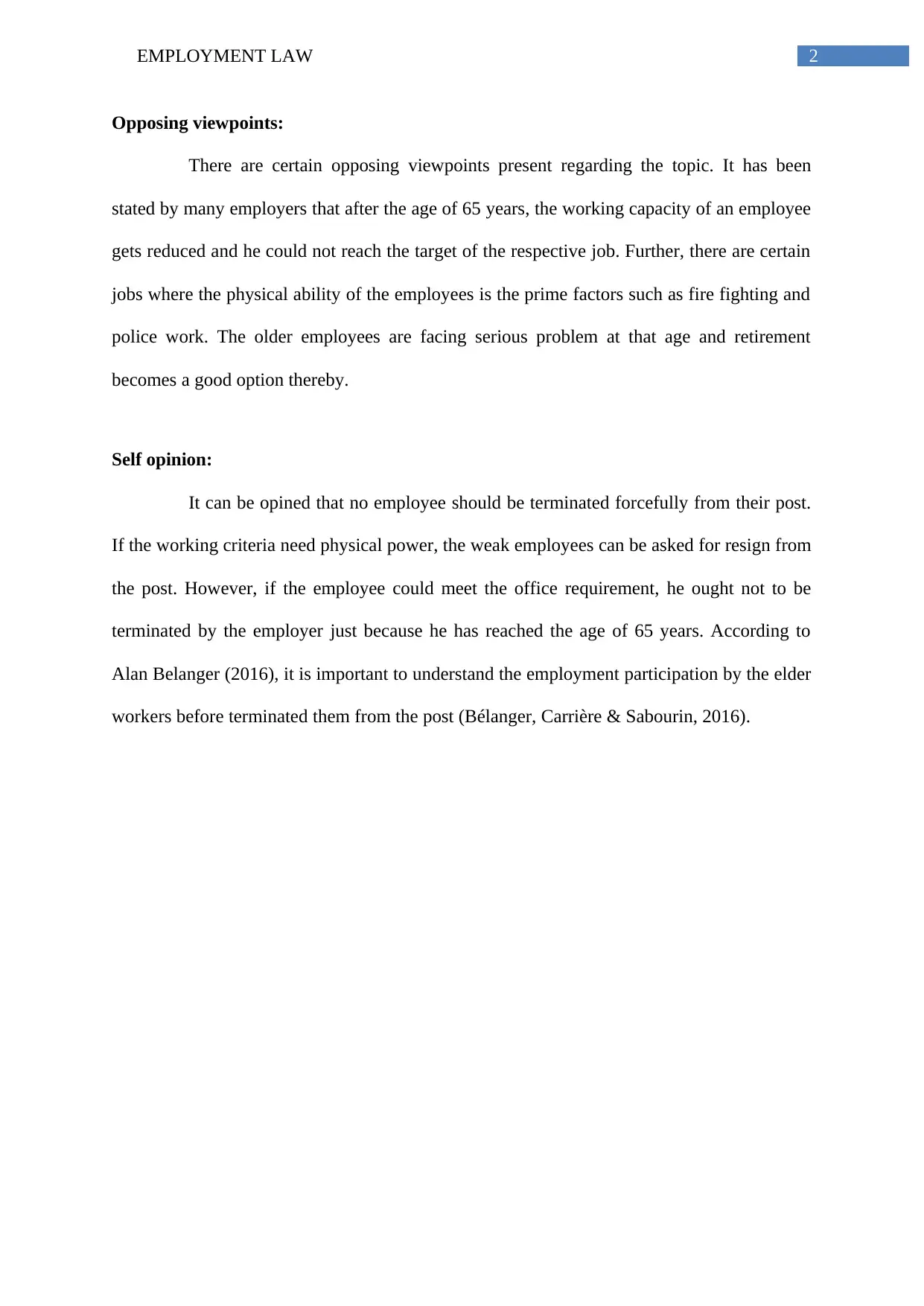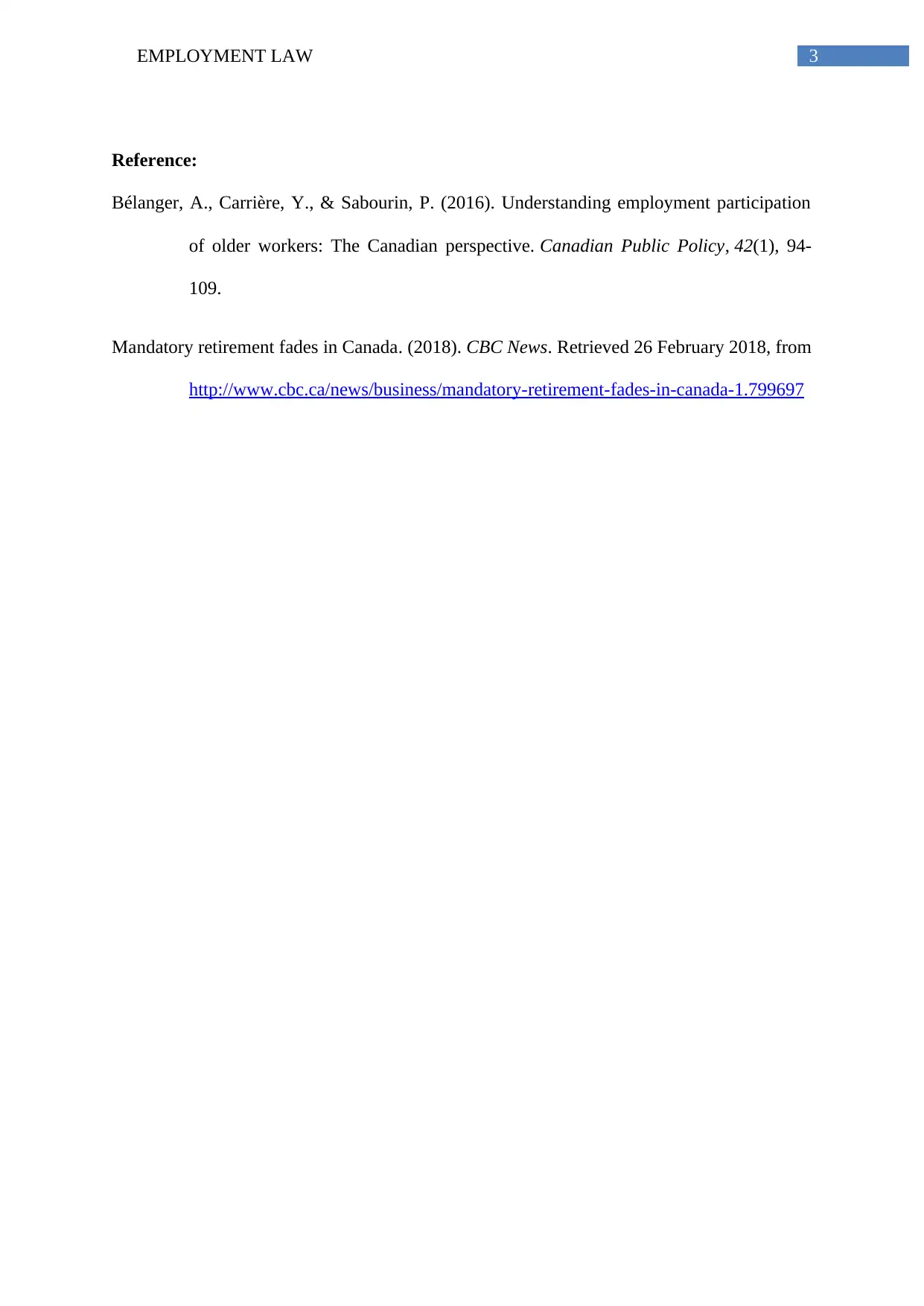Employment Law Report: Analysis of Mandatory Retirement in Canada
VerifiedAdded on 2021/04/17
|4
|570
|86
Report
AI Summary
This report delves into the issue of mandatory retirement in Canada, examining its historical context and the legal battles surrounding it. It begins by highlighting the pre-2010 practice where employers could force employees over 65 to retire. The report then explores the current legal landscape, emphasizing the role of the Human Rights Code of Canada and its prohibition of age-based discrimination. It discusses the impact of the Ontario Human Rights Code and the Canada Labour Code, which aim to protect older workers. The report also presents opposing viewpoints, such as arguments regarding reduced work capacity and the physical demands of certain jobs. The author expresses their opinion that employees should not be terminated solely based on age, provided they meet job requirements. The report references relevant academic sources to support its analysis.
1 out of 4






![[object Object]](/_next/static/media/star-bottom.7253800d.svg)